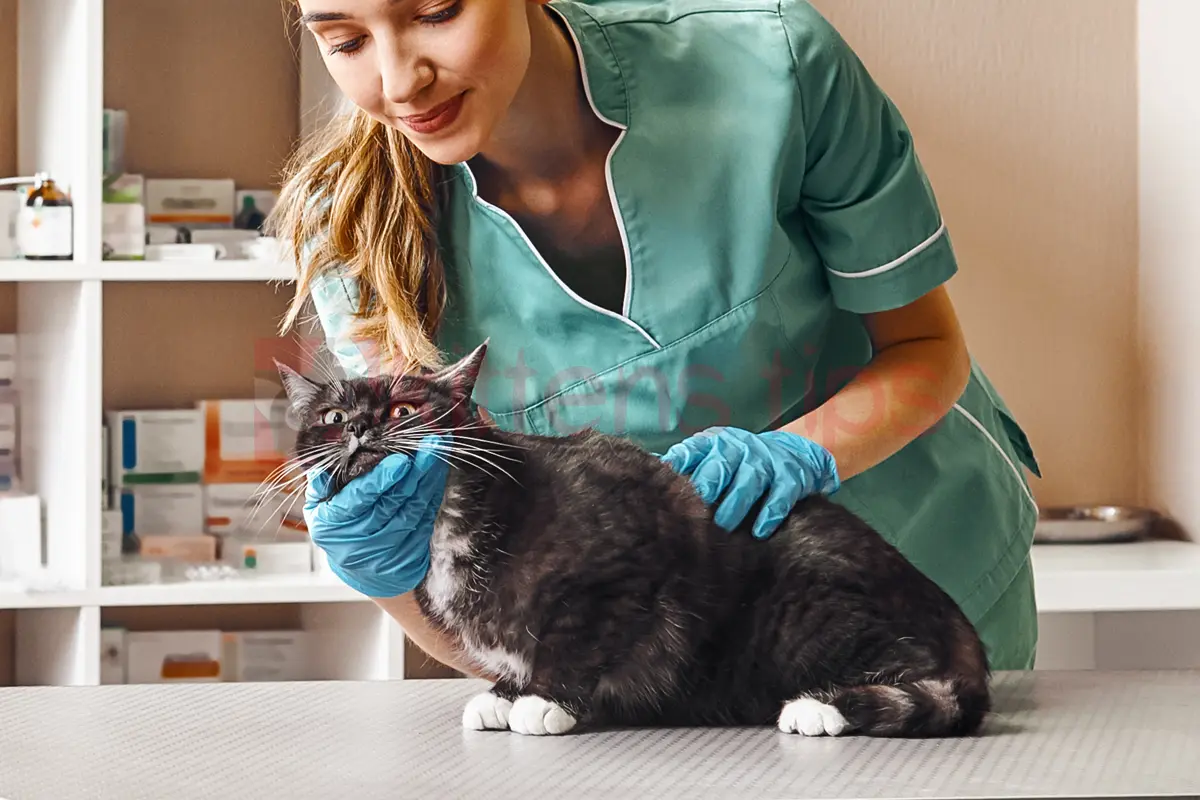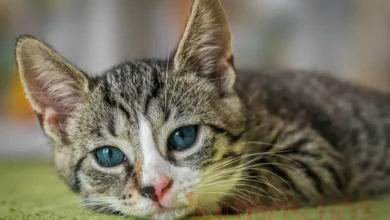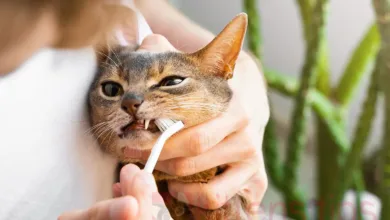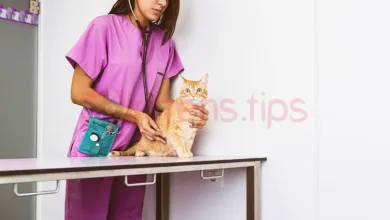
Why Does Hypersalivation Occur in Cats – Excessive Salivation
Why Does Hypersalivation Occur in Cats and What Health Issues Can These Symptoms Conceal? These are natural questions if you have a cat at home and notice excessive salivation.
While it’s normal for dogs to have drool, things are quite different for cats. Hypersalivation in cats is a cause for concern, and the owner must promptly identify the cause.
Salivation is normal in cats when they smell a strongly favored food. It’s a salivation of desire, but it’s usually discreet.
Cats may experience hypersalivation when they are stressed or frightened. In confrontations between cats, it’s quite common for them to drool while tense.
Medications or substances with a bitter taste can induce hypersalivation, and the cat will drool. This is the body’s natural response to rejecting a substance it has come into contact with.
The above causes are not reasons for concern for cat owners. However, there are cases of hypersalivation in cats that may indicate serious health problems, and the attention of a specialized veterinarian is absolutely necessary.
Table of Contents
Hypersalivation Occurs in Cats and Can Signal Health Concerns
Excessive salivation in cats can have various causes, and among those that should worry us and raise questions, I will start with an issue encountered in one of our cats. Hypersalivation that occurs due to physical stress and pain.
Excessive Salivation can be a Sign of Pain and/or Trauma in Cats.
Excessive salivation can be a worrisome indication in cats, signaling potential health issues. We encountered a situation with one of our cats whose overall condition suddenly declined, and the initial noticeable symptom was hypersalivation occurring in cats. This hypersalivation was accompanied by signs of discomfort and a facial expression suggesting an underlying problem.
Upon a visit to the veterinarian, it was diagnosed that the cat was unable to urinate due to a urinary blockage. Following the veterinarian’s intervention and appropriate treatment, the cat showed relief, and Hypersalivation Ceased in Cats.
Therefore, when observing excessive salivation in a cat, it is crucial to keenly monitor its behavior for any associated changes. These can serve as valuable clues to identify the root cause of the issue.
This scenario exemplifies how hypersalivation occur in cats due to pain or trauma. Pain, often associated with urinary and digestive system conditions, is notoriously challenging for cats.
Furthermore, injuries and diseases affecting the oral cavity can also contribute to Hypersalivation Occurring in Cats. Mouth ulcers, gum ailments, oral injuries, and infections are instances where hypersalivation can manifest as a response to extreme pain.
Nausea, a Possible Cause of Hypersalivation
Similar to humans, nausea in cats is often accompanied by vomiting. Before an episode of vomiting or regurgitation, a cat may exhibit excessive salivation. During this time, it can be observed that the cat starts retching and has drooling around the mouth.
Nausea serves as an indicator of potential issues within the cat’s digestive system. A cat will not experience hypersalivation before expelling hairballs through vomiting.
Interaction with toxins can cause hypersalivation in cats
When a cat licks, chews, or ingests a toxic substance, excessive salivation occurs in 99% of cases. Poisonous plants (most of them), detergents, toxic foods, chemicals used to neutralize fleas, beetles, ticks, or other toxic substances will cause the cat to drool.
In this situation, if the episode of excessive salivation does not subside within a few minutes or if you notice the cat’s condition deteriorating, take her to the veterinarian urgently.
In conclusion, if you have a cat exhibiting excessive salivation with drooling, and the cause is not apparent, it is necessary to take her to the veterinarian immediately. Following a thorough examination and blood and urine analyses, the veterinarian will determine the exact cause of hypersalivation.
Hypersalivation occur in cats can be caused by various health problems, and identifying the cause is crucial. Here are some possible causes of hypersalivation in cats:
Dental problems: Infections or gum conditions, cracked or pierced teeth can cause pain and inflammation in the cat’s oral cavity, leading to hypersalivation.
Gastrointestinal diseases: Stomach or intestinal conditions, such as inflammation, gastroesophageal reflux, or obstruction, can stimulate excessive saliva production.
Intoxications: Consumption of substances toxic to cats can cause hypersalivation as part of the body’s response to the ingested substance.
Allergies or irritations: Allergic reactions to food, chemicals, plants, or other irritants can induce hypersalivation in cats.
Infectious diseases: Some infectious conditions, such as feline viral rhinotracheitis or other oral cavity infections, can cause hypersalivation.
Neurological diseases: Certain neurological conditions can affect saliva control, leading to excessive saliva production.
Injuries or obstructions in the mouth or esophagus: The presence of foreign bodies, ulcers, or tumors in the mouth or esophagus can trigger hypersalivation.
It is important to consult a veterinarian to diagnose the cause of hypersalivation in the cat and to establish the appropriate treatment. Only a veterinarian can identify the underlying problem and recommend a specific treatment plan for your beloved cat.


